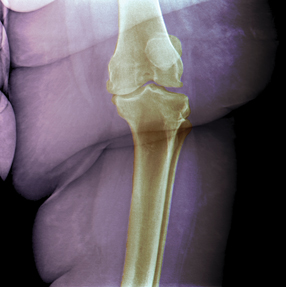Professional excellence, service make ACP essential
In her first column, ACP's incoming president reflects on how internists can make themselves essential to their patients through membership in the College.
We live in most interesting times, for medicine and for professional societies. As preparation for its retreat this year, ACP's Board of Regents read the book “Race for Relevance” by Harrison Coerver and Mary Byers. Its provocative thesis is that trade associations and professional organizations must completely transform themselves if they are to stay relevant in today's world. Relevance is a fine goal, but I would like to see the College take this ambition even further: How can we make ourselves essential to internists and, through our physician members, their patients?
I was a young faculty member in 1986 when a senior colleague, discovering that I was not an ACP member, said, “But you must join the College,” so I did. That kind of unquestioning confidence in the value of professional organizations is less common now, and in honesty I am not sure how long it would have kept me enrolled.
What cemented my relationship with ACP was the unambiguous position the College took early in the AIDS epidemic that physicians have an obligation to care for those whose problems fall within our expertise, our worries and the risk of occupational transmission notwithstanding. This was at a time that is hard for people under 50 to imagine. It was difficult to find pathologists willing to do postmortem exams, and emergency departments routinely put hypoxemic patients in taxi cabs with a canister of oxygen and sent them several hours away to San Francisco General Hospital and other AIDS centers.
ACP may have been the first physicians' organization—it certainly was one of the very early ones—to remind us of what physicians do: We take care of people who are sick although at times it is inconvenient, unpleasant or even dangerous. I was proud to be a member of the College then, and I am still proud.
Standing up for principles can be, and perhaps inevitably is, complicated for a membership organization. In a large and diverse community such as ours, we don't all agree on even foundational principles. Certainly, we have differences of opinion about how these principles should be advanced or realized.
The College has a strategic priority that begins with the phrase, “To support changes in the U.S. health care system and in the delivery of care that lead to better care for patients and better health for the population. ...” While most of us would be hard-pressed to oppose the goal of better care for patients and better health for the population, physicians and others of goodwill can and do disagree on what the goal implies about, for example, the role of advanced practice nurses in our health care system. These discussions are important. As the world changes, what we stand for and whose interests we serve must be constantly reconsidered and reaffirmed.
As someone who has lived in the San Francisco Bay Area her entire professional life, the thing I most enjoyed about being the ACP Governor for Northern California was hearing from our members and through their eyes seeing the practice of medicine in places such as Fort Bragg, Paradise and Visalia. Over the coming year, I look forward to hearing from you and including your voices as we shape internal medicine, and patient care more broadly, for the 21st century.
Anticipating that College business might from time to time interfere with my clinical responsibilities, I recently wrote my patients a letter explaining my role and requesting their indulgence. Of course, they don't know the College, so I needed to explain:
“What is the American College of Physicians, you may ask? It is the professional organization of and for internal medicine specialists. The College was established in 1915 and has 133,000 members in 120 countries. It exists to improve health and health care by 1) ensuring that people who need care can get care (advocacy); 2) making sure that the doctors that they go to have up-to-date knowledge and skills (education); and 3) reminding us continually of the ethics and values that serve as the foundation of medical practice. ACP does this by developing and presenting educational programs, speaking to physician and patient groups of various types, and working with policymakers and legislators at the state and federal levels. These are important times for health care in the United States, as you well know; I am honored to have been asked by the College to serve as a leader and spokesperson over the coming year.”
I believe that this will make sense to my patients. Certainly, they will understand the importance of continuing education in this era of exponential increase in medical knowledge. Likely they will appreciate as well that physicians must play a central role in reengineering health care to achieve the triple aim of better health outcomes, a better experience for patients, and greater efficiency at lower cost.
But it is as the emblem of the professional values of excellence and service that the College is essential. ACP is uniquely a forum where internists carry on the age-old exploration of the values and commitments that are the foundation of our profession. Let us continue the conversation.




